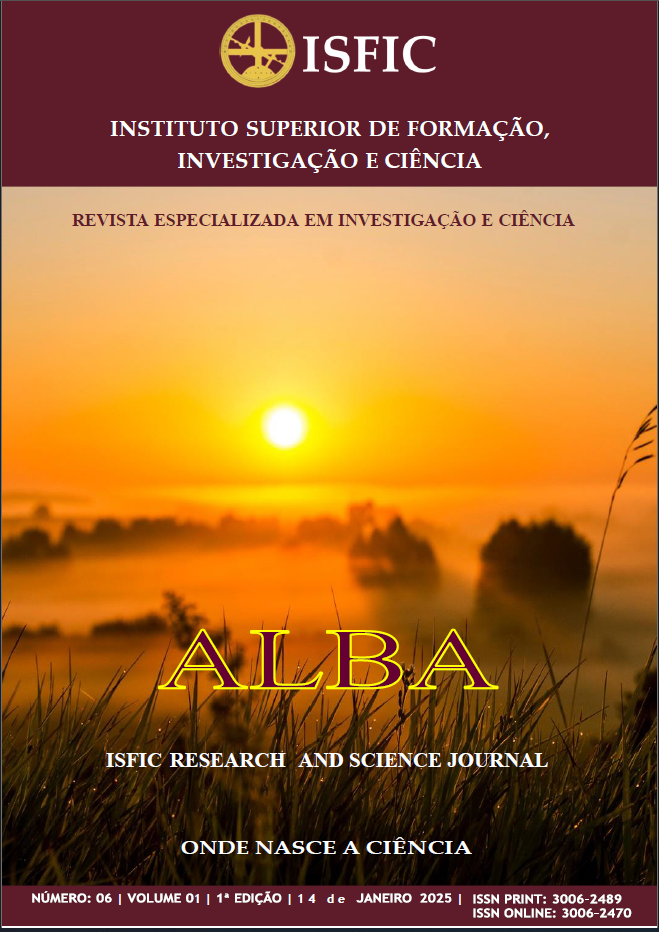The My Kit, My Job Initiative in the Context of the Employment Programs in the Quelimane District (2021-2023)
Abstract
This scientific article was developed with the theme of the My Kit, My Job Initiative in the Context of the Emprega Program in the Distrito de Quelimane (2021-2023). Therefore, the following starting question was raised: To what extent does the Meu Kit, Meu Emprego Initiative contribute to the Emprega in the Distrito de Quelimane? In general, the study aimed to analyze the contribution of the Meu Kit, Meu Emprego initiative to the Emprega in the Distrito de Quelimane and specifically, identify the areas of intervention of the Meu Kit, Meu Emprego, describe the process of obtaining the My Kit, My Job initiative, describe the gains achieved with the My Kit, My Job initiative and explain the challenges arising from the Meu Kit, Meu Emprego initiative in the Distrito de Quelimane. As a methodology, a qualitative approach was used, with the research being conducted using interview, observation and documentary analysis techniques. It was concluded that the objective of the Emprega program is to reduce the unemployment rate in the country, creating employment and income opportunities for the population. It should be noted that the results indicate that the program is an effective mechanism for creating employment and income opportunities, reducing the unemployment rate and contributing to the economic development of both the district. However, for the effectiveness of the program, it was suggested to improve the initiative's dissemination mechanisms, involvement of local leaders, transparency in the selection process, expansion of the initiative to rural areas of the district and promotion of training programs for young people.
Downloads
References
Adam Smith. (1776). A riqueza das nações. Londres: W. Strahan and T. Cadell.
Ali, A., Castel-Branco, C., & Muianga, C. (2017). Emprego e desenvolvimento em Moçambique. Maputo: Instituto de Estudos Sociais e Económicos.
Bandura, A. (2016). Self-efficacy: The exercise of control. New York: W.H. Freeman and Company.
Brush, C. G. (2020). Entrepreneurship research. London: Routledge.
Brush, C. G., Carter, N. M., Greene, P. G., Gatewood, E. J., & Hart, M. M. (2004). Clearing the hurdles: Women building high-growth businesses. Upper Saddle River, NJ: Pearson/Prentice Hall.
Carter, N. M. (2001). Education and entrepreneurship: Creating the knowledge base. Academy of Management Journal, 26(2), 88-102.
Collis, J., & Hussey, R. (2005). Business research: A practical guide for undergraduate and postgraduate students. London: Palgrave Macmillan.
Gatewood, E. J. (2014). Innovation and entrepreneurship. Cambridge: Cambridge University Press.
Gil, A. C. (2018). Métodos e técnicas de pesquisa social (7ª ed.). São Paulo: Atlas.
Greene, P. G. (2009). Resilience and adaptation in entrepreneurship. Journal of Business Venturing, 25(2), 123-137.
Instituto Nacional de Estatística de Moçambique. (2021). O Sector Público em Moçambique: Conceito e Âmbito. Maputo, Moçambique: INE.
Katz, D., & Kahn, R. L. (2000). The social psychology of organizations (2ª ed.). New York: Wiley.
Machado, J. (2020). Empreendedorismo em contextos de vulnerabilidade. Revista de Ciências Sociais, 12(3), 45-56.
Max Weber. (1905). A ética protestante e o espírito do capitalismo. Londres: Allen & Unwin.
Ministério do Trabalho, Emprego e Segurança Social. (2021). Relatório de emprego e condições de trabalho. Maputo, Moçambique: MTESS.
Perreira, J., Costa, M., & Silva, A. (2017). Programas de emprego juvenil: Desafios e oportunidades. Revista Portuguesa de Estudos de Juventude, 25(3), 78-89.
Silva, J. (2019). Comunicação estratégica e política pública. Comunicação e Sociedade, 15(2), 113-129.







